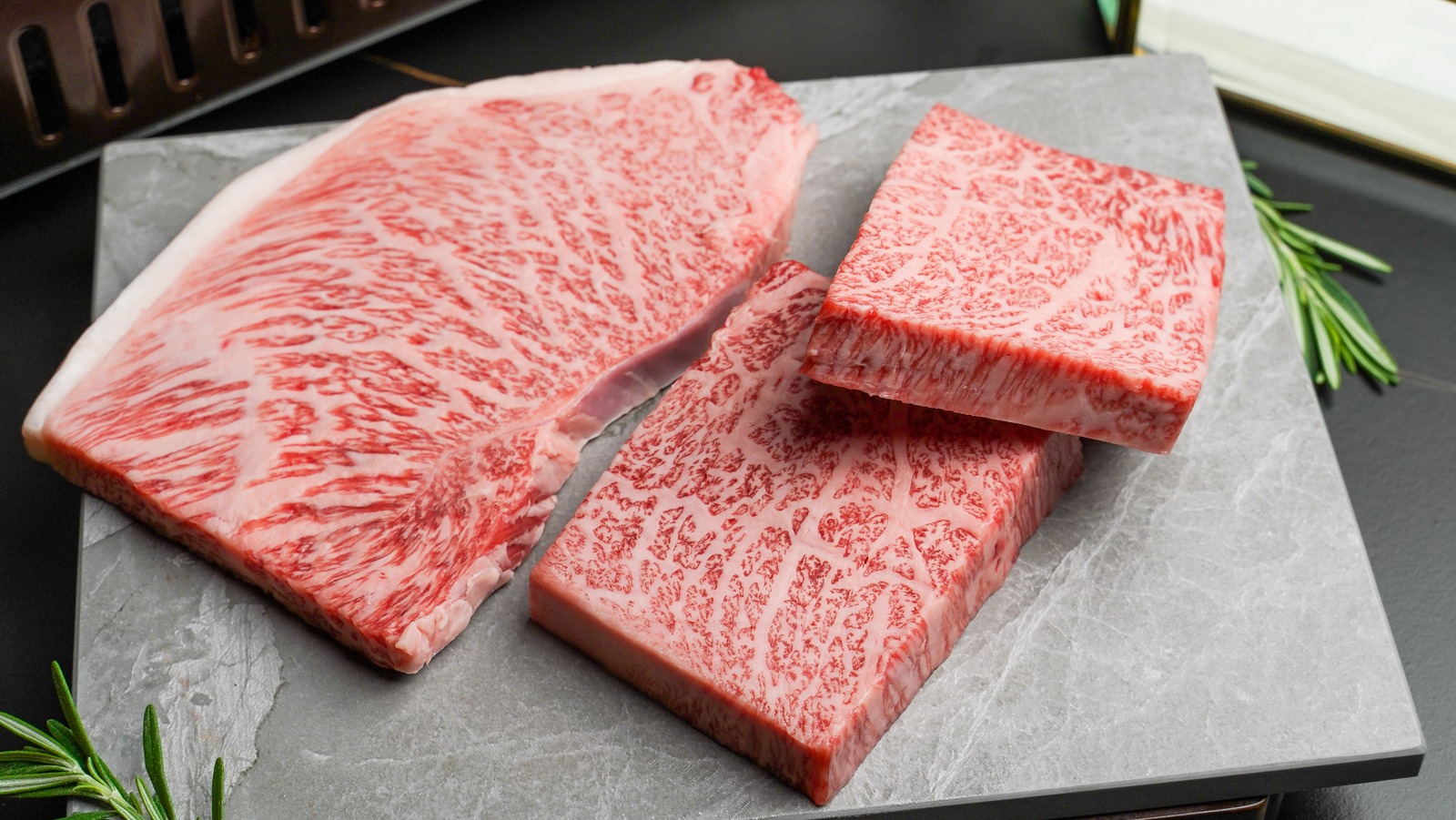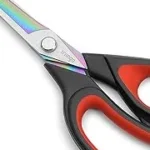Have you ever wondered why wagyu steak comes with such a hefty price tag? It’s a question that many food enthusiasts and meat lovers ponder. Well, let’s dive into the world of wagyu and explore why this premium beef is so expensive.
Wagyu, a term that translates to “Japanese cow,” is known for its exceptional marbling, tenderness, and rich flavor. This is all thanks to the unique breeding and rearing methods used in Japan. From the moment they are born, wagyu cattle are raised with meticulous care, receiving special diets and often massaged to enhance their meat quality.
But that’s not all. The scarcity of wagyu beef also contributes to its high price. Japanese wagyu cattle take longer to mature and have a lower yield compared to other breeds. Additionally, the strict regulations in Japan regarding wagyu beef production means that only a limited number of farms can produce the authentic, top-grade wagyu. These factors combined make wagyu steak a luxurious and exclusive dining experience. So, next time you savor a juicy wagyu steak, you’ll have a better understanding of why it’s worth the splurge.

Why is Wagyu Steak So Expensive?
Wagyu steak is renowned worldwide for its exceptional quality and melt-in-your-mouth tenderness. However, with prices that can often reach astronomical levels, many wonder why this Japanese beef is so incredibly expensive. In this article, we will explore the factors that contribute to Wagyu steak’s high price tag, from the unique breeding and rearing methods to the rigorous standards and limited supply. Join us on this journey to discover what makes Wagyu steak one of the most luxurious and sought-after delicacies in the culinary world.
The Art of Raising Wagyu Cattle
When it comes to Wagyu steak, the extensive care and attention given to the cattle during their upbringing play a significant role in the final price. Wagyu cattle are raised according to traditional Japanese methods and undergo a unique feeding regimen that includes a carefully balanced diet and even the occasional massage. The result is meat that is heavily marbled with a rich and tender texture that sets it apart from other beef varieties.
The rearing process of Wagyu cattle is a crucial factor in its high price. These cattle are often raised in small herds to ensure individual attention and closely monitored feeding. The calves are given special care from a young age, including high-quality feed, access to clean water, and ample room to roam. Such meticulous care contributes to the unique flavor and texture of Wagyu beef.
Furthermore, Wagyu cattle are typically kept on a specialized diet that includes a mix of hay, grains, and sometimes beer or sake mash. This carefully curated diet helps to produce meat that is tender and marbled to perfection, with the characteristic fat that melts at low temperatures, enhancing its luxurious feel in the mouth.
The Strict Standards and Certification Process
Another reason for the high cost of Wagyu steak lies in the strict standards and certification process that ensures its exceptional quality. In Japan, Wagyu beef is governed by various governing bodies that regulate the breeding, rearing, and processing of the cattle. The most well-known certification is the Japanese Meat Grading Association, which uses a complex system to evaluate the quality of each cut of beef based on factors such as marbling, color, and texture.
Wagyu beef is graded on a scale that ranges from A5, the highest grade, to C1, the lowest grade. Only the highest grades (A4 and A5) are typically exported outside of Japan, making them even more exclusive and expensive. The grading system ensures that consumers can trust the quality and authenticity of the Wagyu beef they are purchasing, further contributing to its high price.
Furthermore, the limited supply of Wagyu beef also drives up the price. Due to the extensive care required in raising Wagyu cattle and the stringent certification process, the production of genuine Wagyu beef is limited. This scarcity, combined with its high demand, results in higher prices in both domestic and international markets.
The Difference in Taste and Texture
One of the main reasons why Wagyu steak commands a premium price is due to its unmatched taste and texture. The high marbling of these cuts, a characteristic feature of Wagyu beef, contributes to its exceptional tenderness and juiciness. The intramuscular fat not only adds flavor but also gives the meat a buttery and melt-in-your-mouth texture that is unparalleled.
Furthermore, the distinctive flavor of Wagyu beef, which can range from rich and beefy to buttery and nutty, is a result of the animal’s genetics, diet, and rigorous rearing methods. These factors work in harmony to create a flavor profile that is highly prized by discerning meat connoisseurs.
While the high cost of Wagyu steak may be prohibitive for many, its exceptional quality, flavor, and texture make it a truly memorable dining experience. Whether enjoyed on special occasions or as a luxurious treat, Wagyu steak continues to capture the hearts and palates of food enthusiasts around the world.
The Intricacies of Wagyu Cattle Breeding
Behind the scenes, Wagyu cattle breeding is a complex and intricate process that contributes to the high price of this prized beef. The breeding of Wagyu cattle involves careful selection of parent animals based on their genetic traits, such as marbling potential and meat quality. These traits are then passed down to the offspring, ensuring the continuation of the exceptional characteristics that Wagyu beef is known for.
Wagyu breeders prioritize genetic purity and maintain strict records of the lineage of their animals. This meticulous approach ensures that each Wagyu calf has a known ancestry, allowing breeders to track the traits and lineage of their herds accurately. The careful curation of genetics is yet another factor that contributes to the limited supply and high cost of Wagyu steak.
Moreover, the breeding process also includes artificial insemination, a widespread technique in Wagyu cattle breeding. The use of artificial insemination allows breeders to select the best genetic matches and optimize desired traits in the offspring. By controlling the breeding process, breeders can ensure consistency in the quality and marbling of the final product, further justifying the high price of Wagyu steak.
Wagyu Steak: An Investment in Quality
While the exorbitant prices of Wagyu steak may initially seem baffling, they ultimately reflect the dedication, time, and resources invested in raising these exceptional cattle and producing this luxurious delicacy. The unique breeding methods, strict standards, limited supply, and unparalleled taste and tenderness all contribute to the hefty price tag of Wagyu steak. It is the result of an investment in quality that elevates the dining experience to extraordinary heights. So, the next time you savor a piece of Wagyu steak, embrace the knowledge that you are indulging in one of the finest culinary creations the world has to offer.
Key Takeaways: Why is Wagyu Steak So Expensive?
- Wagyu steak is expensive because of its high-quality production and unique characteristics.
- The cost is attributed to factors such as limited supply and high demand.
- Wagyu cattle are raised with special care, fed a specific diet, and undergo genetic selection.
- The marbling and tenderness of Wagyu beef contribute to its premium price.
- Strict regulations and certifications ensure the authenticity and quality of Wagyu steak.
Frequently Asked Questions
Wagyu steak is renowned for its exceptional quality, tenderness, and marbling. Many people wonder why wagyu steak comes with such a hefty price tag. Here are some frequently asked questions about why wagyu steak is so expensive:
1. What makes wagyu steak so expensive?
There are several factors that contribute to the high price of wagyu steak. Firstly, the rearing process is incredibly meticulous and takes several years. Wagyu cattle are raised in stress-free environments, fed a special diet, and given plenty of space to roam. This results in beef that is incredibly tender and flavorful, but the cost of providing these optimal conditions adds to the overall price.
Secondly, the demand for wagyu beef is high, but the supply is limited. Each wagyu cow produces less meat compared to other breeds, and strict regulations ensure the quality standards are met. The combination of limited supply and high demand drives up the price of wagyu steak.
2. What is the difference between wagyu and regular beef?
The main difference between wagyu and regular beef lies in the level of marbling. Wagyu cattle have a genetic predisposition to develop intramuscular fat, resulting in a high degree of marbling. This marbling gives wagyu beef its distinct flavor, tenderness, and juiciness. Regular beef, on the other hand, tends to have less marbling and may not be as tender or flavorful.
Additionally, the rearing process for wagyu cattle is carefully controlled, which further sets it apart from regular beef. Wagyu cattle are often fed a special diet, raised in stress-free environments, and given plenty of space to move. These factors contribute to the unique texture and taste of wagyu steak, making it more desirable and expensive compared to regular beef.
3. Does the grading affect the price of wagyu steak?
Yes, the grading of wagyu beef can significantly impact its price. Wagyu beef is graded based on its marbling, color, texture, and overall quality. The highest grades, such as A5 in Japan or Prime+ in the United States, represent the top tier of wagyu beef and command a premium price.
The grading process is strict, and only a small percentage of wagyu beef receives the highest grades. The exceptional quality, tenderness, and flavor of these top-grade cuts justify the higher price point, making them highly sought after by culinary enthusiasts and connoisseurs.
4. Why is authentic Japanese wagyu more expensive than other types?
Authentic Japanese wagyu, such as Kobe beef, is often more expensive than other types due to its distinct rearing process and stringent regulations. Kobe beef comes from a specific breed of wagyu, raised in the Hyogo Prefecture in Japan, and must meet strict criteria to be labeled as such.
The rearing process for Kobe beef goes beyond the already meticulous standards set for wagyu. Cattle are fed a specific diet, given regular massages, and occasionally fed beer to enhance their appetite. These extra measures, combined with the limited supply and high demand for Kobe beef, contribute to its higher price.
5. Can the high price of wagyu steak be justified?
While the high price of wagyu steak may seem excessive to some, it is important to consider the exceptional quality and unique characteristics of this beef. The taste, tenderness, and marbling of wagyu steak are unmatched, offering a truly luxurious dining experience.
Moreover, the rearing process for wagyu cattle involves significant time, care, and resources. From providing stress-free environments to carefully controlled diets, every step is taken to ensure the highest standards of beef production. When you savor a piece of wagyu steak, you are not only paying for the meat itself, but also for the expertise, craftsmanship, and dedication that goes into producing such a fine culinary delight.

Why Wagyu Beef Is So Expensive | So Expensive
Summary
Wagyu steak is expensive because it comes from a special kind of cow called Wagyu. These cows are raised with special care and attention, which makes the meat very high quality. The cows are fed a special diet and they are even massaged to make the meat more tender and flavorful. The demand for Wagyu steak is also really high, which drives up the price. People are willing to pay more because they know it is a special and delicious treat. So, if you ever get the chance to try Wagyu steak, know that it is worth the splurge!
Ultimately, the high price of Wagyu steak comes down to the care and attention given to the cows, the unique flavor and tenderness of the meat, and the high demand for this special delicacy. So, if you want to indulge in one of the finest steaks in the world, be prepared to pay a little extra, but know that the experience will be worth it.






